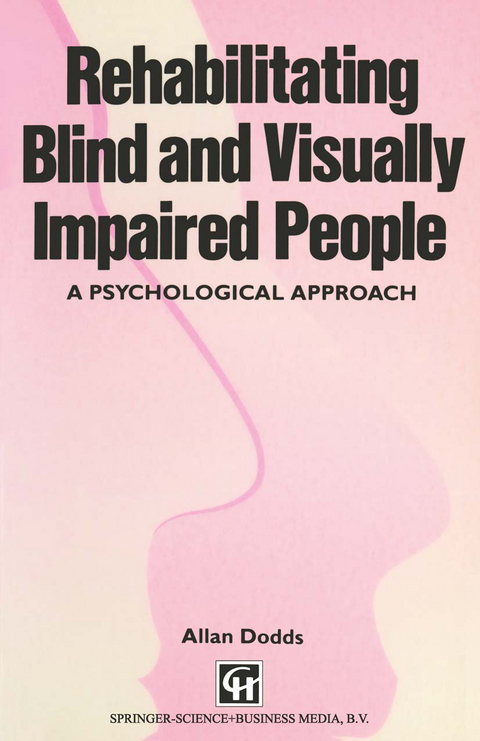
Rehabilitating Blind and Visually Impaired People
A psychological approach
Seiten
1993
|
1993 ed.
Chapman and Hall (Verlag)
978-0-412-46970-1 (ISBN)
Chapman and Hall (Verlag)
978-0-412-46970-1 (ISBN)
Examines psychological factors and their influence on the rehabilitative processes for visually impaired and blind people. The book emphasizes the importance of treating people individually, based on consideration of their psychological strengths and weaknesses as well as physical functioning.
Examines psychological factors and their influence on the rehabilitative processes for visually impaired and blind people. Drawing on examples from a range of sensory and physical disabilities, this book emphasizes the importance of treating people individually, based on consideration of their psychological strengths and weaknesses as well as physical functioning. Written for workers with visually impaired people, this book is equally accessible to students and qualified workers, including rehabilitation workers, O & M specialists, occupational therapists, social workers and psychologists. Students and workers should find the language easy to understand and largely non-technical. Where specialized terminology is used, it is illustrated with concrete examples. Of special relevance is a chapter examining "burn-out", which accounts for unnecessary losses of talented and conscientious workers. Dodds offers ways in which workers can recognize signs of burn-out, as well as suggestions for dealing with it.
Examines psychological factors and their influence on the rehabilitative processes for visually impaired and blind people. Drawing on examples from a range of sensory and physical disabilities, this book emphasizes the importance of treating people individually, based on consideration of their psychological strengths and weaknesses as well as physical functioning. Written for workers with visually impaired people, this book is equally accessible to students and qualified workers, including rehabilitation workers, O & M specialists, occupational therapists, social workers and psychologists. Students and workers should find the language easy to understand and largely non-technical. Where specialized terminology is used, it is illustrated with concrete examples. Of special relevance is a chapter examining "burn-out", which accounts for unnecessary losses of talented and conscientious workers. Dodds offers ways in which workers can recognize signs of burn-out, as well as suggestions for dealing with it.
Blindness: implications of the term. Models of rehabilitation.Psychological adjustment to sight loss. Perception as information-processing. The brain. Special client groups and their problems. Congenital blindness. Anxiety, stress and the learning process. Low Vision. The family. Taking care of yourself.
| Zusatzinfo | 13 Illustrations, black and white; XIV, 203 p. 13 illus. |
|---|---|
| Verlagsort | London |
| Sprache | englisch |
| Maße | 140 x 216 mm |
| Themenwelt | Geisteswissenschaften ► Psychologie ► Klinische Psychologie |
| Medizin / Pharmazie ► Medizinische Fachgebiete ► Augenheilkunde | |
| Medizin / Pharmazie ► Physiotherapie / Ergotherapie ► Rehabilitation | |
| Sozialwissenschaften ► Pädagogik ► Sozialpädagogik | |
| ISBN-10 | 0-412-46970-7 / 0412469707 |
| ISBN-13 | 978-0-412-46970-1 / 9780412469701 |
| Zustand | Neuware |
| Haben Sie eine Frage zum Produkt? |
Mehr entdecken
aus dem Bereich
aus dem Bereich
Information • Energie • Materie
Buch | Softcover (2015)
Lehmanns Media (Verlag)
CHF 41,90
Manual zur Dokumentation des psychischen Befundes in Psychiatrie, …
Buch | Softcover (2023)
Hogrefe Verlag
CHF 39,95


